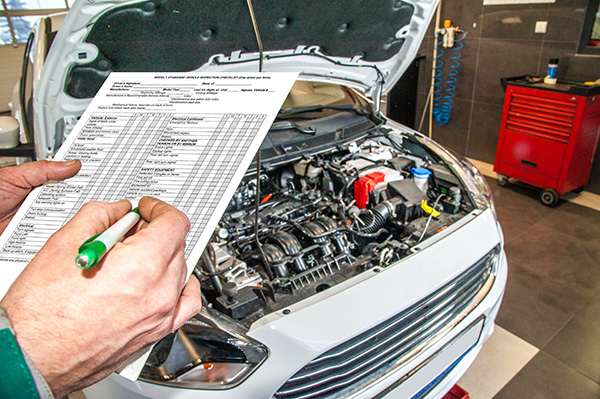
Purchasing a pre-owned vehicle can be a smart financial decision, but it comes with its own set of challenges. Unlike new cars, used cars have a history that can impact their performance, safety, and longevity. To ensure you're making a wise investment, performing thorough checks before finalizing the deal is crucial. In this article, we'll guide you through seven essential checks to help you buy a reliable pre-owned vehicle.
1. Check the Vehicle History Report
Before you even set foot in the car, obtain a vehicle history report. This report provides crucial information about the car's past, including:
- Accident History: Whether the car has been involved in any accidents and the extent of the damage.
- Title Status: Ensures the car doesn't have a salvage title, which indicates it has been deemed a total loss by an insurance company.
- Odometer Reading: Verifies that the mileage on the car is accurate and hasn't been tampered with.
- Service Records: Shows if the car has been regularly maintained and serviced.
Services like Carfax or AutoCheck can provide comprehensive vehicle history reports. A clean history report is a good indicator of a well-maintained vehicle, while a bad car history can be excellent negotiation leverage.
2. Inspect the Exterior and Interior
A thorough inspection of the car's exterior and interior can reveal a lot about its condition. Look for the following:
Exterior Checks:
- Body Condition: Check for dents, scratches, and rust. Uneven gaps between body panels can indicate previous accidents.
- Paint: Look for paint color and texture inconsistencies, which may suggest repair work.
- Tires: Ensure the tires have sufficient tread and are evenly worn. Uneven wear can indicate alignment issues.
Interior Checks:
Upholstery: Inspect the seats and carpets for stains, tears, and unusual wear.
Controls: Test all controls, including lights, wipers, windows, and the air conditioning system.
Odor: A musty or moldy smell can indicate water damage or leaks.
3. Examine the Engine and Transmission
The engine and transmission are the heart of any vehicle, so it's crucial to ensure they're in good working order. Here's what to look for:
Engine Checks:
- Oil Level and Condition: Check the oil level and its color. Dirty oil can indicate poor maintenance.
- Leaks: Look for any signs of oil or fluid leaks under the car.
- Belts and Hoses: Inspect belts and hoses for cracks or signs of wear.
Transmission Checks:
- Fluid Level and Condition: The transmission fluid should be at the correct level and a healthy reddish color. Dark or burnt-smelling fluid can indicate problems.
- Shifting: During the test drive, observe how the transmission shifts. It should be smooth and responsive without any jerks or delays.
4. Test Drive the Vehicle
A test drive is one of the most important steps in evaluating a pre-owned vehicle. It allows you to experience how the car performs under real driving conditions. Here's what to focus on:
- Starting the Car: The car should start easily without any unusual noises.
- Acceleration and Braking: Ensure the car accelerates smoothly and the brakes respond promptly without any noise or vibration.
- Steering and Handling: The steering should be responsive, and the car should handle turns and bumps smoothly.
- Listen for Noises: Pay attention to any unusual noises such as rattling, clunking, or squeaking.
5. Check the Car's Electronics
Modern vehicles come equipped with various electronic systems that should be checked to ensure everything is functioning properly. This includes:
- Dashboard Warning Lights:Make sure there are no warning lights on the dashboard when the car is running.
- Infotainment System: Test the radio, Bluetooth connectivity, navigation system, and any other electronic features.
- Safety Features: Verify that all safety features, such as airbags, ABS, and traction control, work correctly.
6. Have Hometown Tire and Auto Inspect the Car
Even if you're confident in your inspection skills, it's always a good idea to have a professional technician inspect the car before you buy it. We provide a detailed assessment and identify any potential issues that may not be apparent to the untrained eye. This inspection can save you from expensive repairs down the line and give you peace of mind about your purchase.
7. Verify Ownership and Legal Documents
Ensure all legal documents are in order before making the purchase. This includes:
- Title: The title should be clear and in the seller's name. Verify that there are no liens against the car.
- Registration: Check that the car's registration is current and matches the information on the title.
- VIN: Verify that the Vehicle Identification Number (VIN) on the car matches the one on the title and registration.
Ready to find your perfect pre-owned vehicle? Schedule a pre-purchase inspection with Hometown Tire and Auto and buy with confidence!